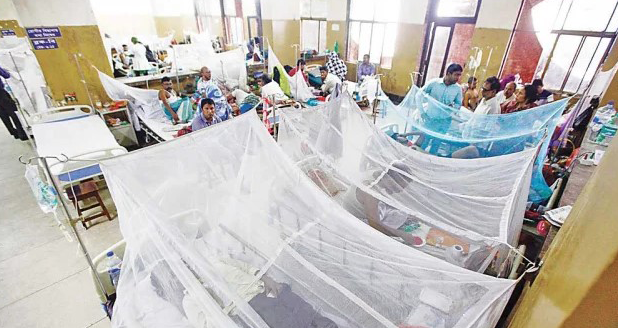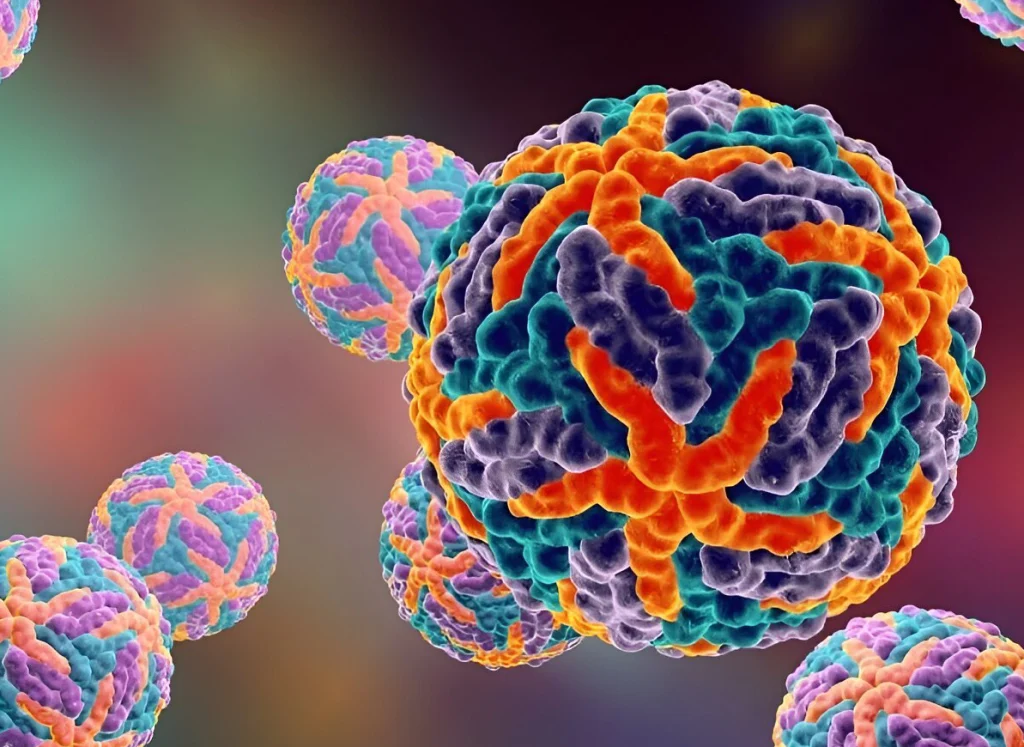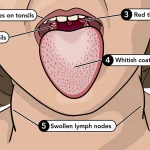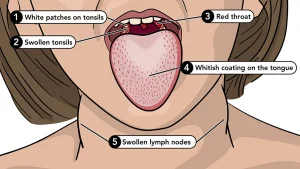
Understanding Dengue Fever in 2023
Introduction
In the ever-evolving landscape of healthcare, it is imperative to stay informed about prevalent diseases. Dengue fever, a mosquito-borne illness, has been a persistent concern, and in 2023, understanding its dynamics and preventive measures is more critical than ever. This article aims to shed light on the nuances of Dengue fever in the current year, providing insights, solutions, and a perspective on how we can collectively combat this health threat.
The Resurgence of Dengue
Dengue fever, once considered a tropical disease, has transcended geographical boundaries. With climate changes and globalization, Dengue is now a worldwide issue. The year 2023 has seen a surge in reported cases, urging healthcare professionals and communities to reevaluate their approach.
A Closer Look at the Dengue Virus
To combat Dengue, one must first comprehend the virus itself. Dengue is caused by the Flavivirus, which is transmitted through the bites of infected female mosquitoes, primarily the Aedes aegypti. This virus exists in four serotypes, each capable of causing the disease, and in some cases, multiple infections can occur.
Symptoms and Diagnosis
Identifying Dengue Fever
Recognizing Dengue fever’s symptoms is crucial for early intervention. The initial phase often presents with high fever, severe headaches, joint and muscle pain, and a distinctive skin rash. However, as Dengue progresses, it can lead to severe manifestations, such as Dengue Hemorrhagic Fever (DHF) and Dengue Shock Syndrome (DSS), which require immediate medical attention.
Diagnostic Techniques
In 2023, advanced diagnostic tools have revolutionized Dengue detection. Polymerase Chain Reaction (PCR) tests and enzyme-linked immunosorbent assays (ELISA) are now standard procedures for accurate diagnosis. These methods enable healthcare providers to swiftly and accurately confirm Dengue cases.
Prevention Strategies
Mosquito Control Measures
In the battle against Dengue, prevention is paramount. Eliminating mosquito breeding sites, using insect repellents, and employing bed nets are fundamental strategies. In 2023, innovative mosquito control technologies have emerged, offering more effective and environmentally friendly solutions.
Vaccination Efforts
While a Dengue vaccine has been in development, 2023 marks a significant milestone with improved vaccine formulations. These vaccines show promise in providing immunity against all four Dengue serotypes, offering hope for widespread immunization.
Community Engagement and Awareness
The Role of Communities
Communities play a vital role in Dengue prevention. Through education and collaboration, neighborhoods can implement preventive measures, raise awareness, and foster a collective effort against this global health threat.
Harnessing Technology for Awareness
In the digital age of 2023, technology serves as a powerful tool in disseminating information. Mobile applications, social media campaigns, and online resources are integral in educating the public about Dengue fever and its preventive measures.
A Collective Responsibility
In conclusion, as we navigate the challenges posed by Dengue fever in 2023, it is imperative that we approach this health threat with a united front. Understanding the virus, recognizing symptoms, adopting advanced diagnostic techniques, and implementing robust prevention strategies are the cornerstones of our defense. Through community engagement, technological advancements, and continued research, we can forge a path towards a Dengue-free future.
“The fight against Dengue is not merely a medical battle, but a collective responsibility of communities and healthcare providers alike.” – Dr. Elena Rodriguez, Infectious Disease Specialist.
In 2023, let us stand together, informed and empowered, to combat Dengue fever and safeguard the health and well-being of our global community.
How many individuals are afflicted with Dengue fever in 2023?
In 2023, Dengue fever continues to be a pressing global health concern, affecting a significant number of individuals worldwide. The prevalence of Dengue has seen a noticeable upswing, with a surge in reported cases compared to previous years. This increase can be attributed to a combination of factors, including climate variations, urbanization, and international travel. As a result, health authorities and communities are intensifying their efforts to tackle this mosquito-borne disease.
The resurgence of Dengue fever in 2023 underscores the need for heightened awareness and effective prevention strategies. This infectious disease, caused by the Flavivirus and transmitted through the bites of infected Aedes mosquitoes, poses a substantial threat to public health. The virus’s ability to exist in four distinct serotypes further complicates the management of Dengue, as individuals can be susceptible to multiple infections. This complexity necessitates a thorough understanding of the virus and its various manifestations.
Diagnostic techniques have significantly evolved in 2023, enabling swifter and more accurate identification of Dengue cases. Polymerase Chain Reaction (PCR) tests and enzyme-linked immunosorbent assays (ELISA) have become standard procedures, allowing healthcare providers to promptly confirm the presence of the Dengue virus. This advancement is crucial in ensuring timely medical intervention and preventing the progression of the disease into more severe forms like Dengue Hemorrhagic Fever (DHF) and Dengue Shock Syndrome (DSS).
The global community’s collective responsibility in combating Dengue fever cannot be overstated. Mosquito control measures, such as eliminating breeding sites and utilizing insect repellents, form the frontline defense against the spread of Dengue. Moreover, advancements in mosquito control technologies in 2023 offer more effective and environmentally-friendly solutions. Additionally, the development of Dengue vaccines represents a significant stride forward in prevention efforts. The improved formulations hold promise in conferring immunity against all four Dengue serotypes, providing hope for widespread immunization campaigns.
The prevalence of Dengue fever in 2023 demands heightened vigilance and concerted efforts from both healthcare professionals and communities. Understanding the complexities of the virus, employing advanced diagnostic techniques, and implementing robust prevention strategies are pivotal in curbing its spread. By prioritizing education, community engagement, and technological advancements, we can collectively work towards a Dengue-free future, safeguarding the health and well-being of individuals across the globe.
Travel Precautions to Avoid Dengue 2023

As travel becomes increasingly accessible in 2023, it’s crucial to prioritize health and safety, especially in regions where Dengue fever is prevalent. Dengue, a mosquito-borne illness, poses a significant risk in many parts of the world. To protect yourself and your loved ones, consider the following travel precautions:
- Stay Informed About Dengue-Endemic Areas Before embarking on your journey, research the destination’s Dengue risk level. Stay updated on the latest travel advisories and consult reputable sources like the World Health Organization (WHO) or the Centers for Disease Control and Prevention (CDC) for guidance.
- Pack Appropriate ClothingOpt for long-sleeved shirts, long pants, and closed-toe shoes, particularly if you’re traveling to regions known for Dengue transmission. This attire provides an extra layer of protection against mosquito bites.
- Apply Insect Repellent Use an insect repellent containing DEET, picaridin, or oil of lemon eucalyptus. Apply it on exposed skin and clothing. Reapply as directed, especially after swimming or sweating.
- Utilize Bed Nets If you’re staying in accommodations without screened windows or air conditioning, use a bed net treated with insecticide. This provides a physical barrier between you and potentially infected mosquitoes.
- Avoid Peak Mosquito Activity Times Aedes mosquitoes, which transmit Dengue, are most active during dawn and dusk. If possible, stay indoors during these periods or take extra precautions to prevent mosquito bites.
- Eliminate Standing Water In and around your accommodation, be vigilant about eliminating any sources of standing water. Mosquitoes breed in stagnant water, so empty containers like flowerpots, buckets, and tires.
- Stay in Air-Conditioned or Screened-In Accommodations When choosing lodging, opt for places with air conditioning or well-maintained screens on windows and doors. This provides an added layer of protection against mosquito entry.
- Seek Prompt Medical Attention If you experience symptoms like high fever, severe headaches, joint and muscle pain, or a distinctive skin rash during or after your travels, seek medical attention immediately. Early diagnosis and treatment are crucial in managing Dengue.
- Stay Hydrated Proper hydration supports your body’s immune system. Drink plenty of fluids, especially in hot and humid climates where Dengue-carrying mosquitoes thrive
If you’re traveling with children, elderly individuals, or individuals with compromised immune systems, take extra precautions to ensure their safety. Provide them with appropriate clothing and ensure they’re using insect repellent.
By following these travel precautions, you can significantly reduce the risk of contracting Dengue fever while exploring new destinations in 2023. Remember, vigilance and awareness are key to a safe and enjoyable travel experience.
What measures can be taken to avoid contracting dengue while traveling?
When embarking on a journey, especially to regions where dengue fever is prevalent, it is crucial to take proactive measures to minimize the risk of contracting this mosquito-borne illness. One of the most effective precautions is to stay informed about the dengue situation in the destination. Researching and keeping up-to-date with travel advisories and reports from reputable health organizations like the World Health Organization (WHO) or the Centers for Disease Control and Prevention (CDC) provides valuable insights. Understanding the level of risk and potential outbreaks in the area allows travelers to tailor their precautions accordingly.
Appropriate clothing plays a pivotal role in dengue prevention. Opting for long-sleeved shirts, long pants, and closed-toe shoes offers a physical barrier against mosquito bites. Additionally, using insect repellent is a cornerstone of dengue prevention. Applying a repellent containing DEET, picaridin, or oil of lemon eucalyptus on exposed skin and clothing helps deter mosquitoes. Regular reapplication, especially after activities like swimming or sweating, ensures continued protection.
Bed nets treated with insecticide are indispensable, particularly in accommodations without screened windows or air conditioning. They create a barrier between individuals and potentially infected mosquitoes, significantly reducing the risk of transmission. Moreover, being mindful of peak mosquito activity times is vital. Aedes mosquitoes, which transmit dengue, are most active during dawn and dusk. Staying indoors or taking extra precautions during these periods can greatly minimize the chances of mosquito bites.
Eliminating sources of standing water is a fundamental step in dengue prevention. Mosquitoes breed in stagnant water, making it crucial to empty containers like flowerpots, buckets, and tires in and around accommodations. By being vigilant about water collection, travelers can effectively disrupt the mosquito’s breeding cycle and reduce their presence. Overall, a combination of these measures, coupled with a heightened awareness of the local dengue situation, significantly enhances the chances of a safe and healthy travel experience.
What are five methods to avoid contracting dengue fever?
Certainly.
Preventing dengue fever is of paramount importance, especially in regions where it poses a significant health risk. One crucial measure is to diligently eliminate potential mosquito breeding sites. This includes emptying containers that collect and hold water, such as flowerpots, buckets, and discarded tires. By doing so, individuals disrupt the mosquito’s reproductive cycle, significantly reducing the population. Additionally, covering water storage containers can prevent mosquitoes from laying their eggs in them, further curbing their proliferation.
Another effective method is to use insect repellents containing active ingredients like DEET, picaridin, or oil of lemon eucalyptus. Applying these repellents on exposed skin and clothing provides a crucial barrier against mosquito bites. Regular reapplication, especially after activities that might cause sweating or swimming, ensures continuous protection. In tandem with repellents, wearing long-sleeved shirts, long pants, and closed-toe shoes further minimizes exposed skin, making it harder for mosquitoes to bite.
Utilizing bed nets treated with insecticide is indispensable, especially in regions where mosquitoes are prevalent. These nets create a physical barrier between individuals and potentially infected mosquitoes, significantly reducing the risk of transmission. When used in accommodations without screened windows or air conditioning, bed nets become a critical tool in dengue prevention. Additionally, staying indoors or taking extra precautions during peak mosquito activity times, which are typically dawn and dusk, further lowers the likelihood of being bitten.
Community involvement is a powerful method in the fight against dengue fever. Educating local populations about preventive measures and fostering a collective effort can lead to a significant reduction in mosquito breeding sites. Engaging with communities to raise awareness and encourage proactive measures empowers individuals to take charge of their environment. This collaborative approach, when coupled with individual efforts, creates a formidable defense against dengue transmission.
Lastly, staying informed about dengue-endemic areas and heeding travel advisories is crucial, especially for those planning to travel. Reputable sources like the World Health Organization (WHO) or the Centers for Disease Control and Prevention (CDC) offer valuable insights into the current dengue situation in specific regions. By understanding the level of risk, travelers can tailor their precautions accordingly, ensuring a safer and healthier travel experience.
Related Links:
Conclusions:
Safeguarding Against Dengue Fever in 2023
In 2023, the resurgence of Dengue fever necessitates a heightened awareness of preventive measures, particularly for travelers venturing into regions where the disease is endemic. Dengue, a mosquito-borne illness, poses a substantial health risk, but with the right precautions, individuals can significantly reduce their chances of contracting the virus.
By staying informed about Dengue-endemic areas and heeding travel advisories, travelers can make informed decisions about their destinations. Packing appropriate clothing, utilizing insect repellents, and employing bed nets offer effective physical barriers against Dengue-carrying mosquitoes. Additionally, avoiding peak mosquito activity times and eliminating standing water around accommodations are simple yet powerful strategies in preventing Dengue transmission.
Seeking accommodations with air conditioning or well-maintained screens provides an extra layer of protection, while prompt medical attention for any potential Dengue symptoms is paramount. Staying hydrated and being mindful of travel companions, especially those who may be more vulnerable, further contribute to a safe travel experience.
In conclusion, while Dengue fever remains a concern in 2023, travelers have a range of effective precautions at their disposal. By following these guidelines and staying vigilant, individuals can explore new destinations with confidence, knowing they have taken every step possible to safeguard against Dengue. Remember, knowledge and preparation are the best allies in the fight against this mosquito-borne illness. Safe travels!
Recent Posts:
FAQ’s:
What is Dengue fever?
Dengue fever is a mosquito-borne viral infection caused by the Flavivirus. It is transmitted to humans through the bites of infected Aedes mosquitoes, primarily Aedes aegypti.
How prevalent is Dengue fever in 2023?
In 2023, Dengue fever continues to be a significant global health concern, with a noticeable increase in reported cases compared to previous years. It is prevalent in many parts of the world, particularly in regions with warm climates.
What are the common symptoms of Dengue fever?
The initial symptoms of Dengue fever often include high fever, severe headaches, joint and muscle pain, and a distinctive skin rash. In more severe cases, Dengue can progress to Dengue Hemorrhagic Fever (DHF) and Dengue Shock Syndrome (DSS).
How can travelers protect themselves against Dengue fever in 2023?
Travelers can take several precautions to reduce the risk of contracting Dengue fever. These include staying informed about Dengue-endemic areas, wearing appropriate clothing, applying insect repellent, using bed nets, avoiding peak mosquito activity times, and seeking accommodations with air conditioning or screens.
What should travelers do if they suspect they have contracted Dengue fever during their trip?
If travelers experience symptoms such as high fever, severe headaches, joint and muscle pain, or a distinctive skin rash during or after their trip, they should seek prompt medical attention. Early diagnosis and treatment are crucial in managing Dengue.
Are there any specific precautions for vulnerable individuals, such as children or the elderly?
Yes, travelers with children, elderly individuals, or individuals with compromised immune systems should take extra precautions. They should ensure that appropriate clothing is worn, insect repellent is used, and accommodations provide necessary protection against mosquitoes.
How can travelers contribute to the prevention of Dengue fever in their chosen destination?
Travelers can help prevent Dengue transmission by being mindful of their surroundings and eliminating sources of standing water. They can also engage with local communities to raise awareness about Dengue prevention and control measures.
Is there a Dengue vaccine available in 2023?
Yes, in 2023, there are improved formulations of Dengue vaccines that show promise in providing immunity against all four Dengue serotypes. These vaccines represent a significant advancement in Dengue prevention efforts.
What is the significance of staying hydrated in Dengue prevention?
Proper hydration supports the body’s immune system and overall health. It is particularly important in hot and humid climates where Dengue-carrying mosquitoes thrive.
How can travelers stay updated on the latest information about Dengue fever in their chosen destination?
Travelers can consult reputable sources like the World Health Organization (WHO) or the Centers for Disease Control and Prevention (CDC) for the latest travel advisories and information on Dengue-endemic areas. Additionally, staying connected with local health authorities at the destination can provide valuable updates.





















